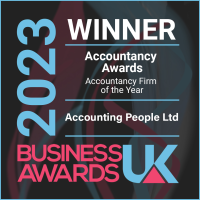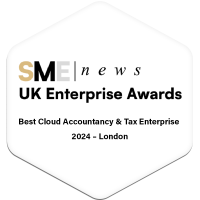Managing tax return for a small business in the UK can feel overwhelming for many small business owners. Yet, understanding how to file your return correctly is essential, not just for staying compliant with HMRC regulations, but also for avoiding penalties and unlocking potential tax-saving opportunities.
This guide breaks the process into clear steps, from preparing your records to submitting online, so you can approach tax season with confidence.
Why Tax Returns Matter for Small Businesses
Filing a tax return isn’t simply a legal requirement, it’s also an important part of financial management. Done correctly, your return helps you:
- Stay compliant and avoid fines.
- Understand your business’s financial health.
- Identify opportunities for tax relief.
- Make better-informed decisions about investment and growth.
Common Misconceptions About Tax Returns
Many small business owners make avoidable mistakes due to misunderstandings:
- “Only profitable businesses need to file.” False, all active businesses must file, even at a loss.
- “It’s my accountant’s responsibility.” While accountants assist, ultimately the responsibility is yours.
- “Minor mistakes don’t matter.” HMRC’s systems can detect inconsistencies, and even small errors may trigger penalties.
- “Claiming everything maximises savings.” Over-claiming expenses risks investigations and fines.
Understanding Your Obligations
Key Deadlines
- 31 January: Online self-assessment filing deadline for the previous tax year (and tax payment).
- For example, if the tax year ends on 5 April 2025, the filing and payment deadline will be 31 January 2026.
- 31 October: Paper filing deadline.
- VAT returns: Usually due quarterly, one month and seven days after the VAT period ends.
- PAYE and National Insurance: Monthly or quarterly deadlines apply if you employ staff.
Missing deadlines leads to automatic fines and interest charges.
Documents You’ll Need
Accurate documentation is the backbone of a smooth tax return. Gather:
- Income records: invoices, bank statements, sales records.
- Expense records: receipts, bills, and statements for all business costs.
- Business assets: purchase records for property or equipment.
- Payroll records: if you employ staff.
- Loans or grants: details of funding received.
Keeping these organised throughout the year makes filing far less stressful.
Preparing Your Financial Records
Organising Income Statements
- Reconcile sales invoices with bank deposits.
- Track income streams separately for better insights.
- Use accounting software to simplify categorisation and reporting.
From the 2025/26 tax year, if your turnover from self-employment and rental income exceeds £50,000, you will be required to join HMRC’s Making Tax Digital (MTD) for Income Tax regime. For more details, check out our MTD for Income Tax blog.
Tracking Expenses
- Keep receipts and invoices organised.
- Categorise expenses (e.g., travel, utilities, office supplies).
- Watch for non-deductible costs (like client entertainment).
- Update records regularly to avoid a year-end rush.
Completing the Tax Return
Navigating HMRC Forms
Most small businesses file using self-assessment tax returns. Online filing via HMRC is recommended, as the system provides prompts and error checks. Always:
- Read the guidance notes carefully.
- Keep documentation at hand.
- Save copies of submitted forms for your records.
Avoiding Errors
- Don’t miss deadlines.
- Double-check income and expense figures.
- Claim only allowable deductions.
- Complete all relevant supplementary pages.
- Ensure details (like your NI number) are correct.
Professional Support vs DIY
When to Hire an Accountant
Consider appointing an accountant if:
- Your finances are becoming complex.
- You’re expanding or restructuring.
- You’re unsure about compliance or facing an HMRC audit.
- You want to save time and focus on growth.
An accountant not only ensures accuracy but can also help identify tax-saving strategies.
Using Tax Software
For those comfortable with digital tools, tax software offers:
- Built-in accuracy checks to reduce mistakes.
- Regular updates in line with HMRC rules.
- Time savings through automation.
- Integration with accounting software.
- Affordability compared to full professional services.
Final Thoughts
Filing a tax return for a small business doesn’t have to be intimidating. With the right preparation, accurate records, and professional support where needed, you can stay compliant and focus on growing your business.
At Accounting People Ltd, we help small businesses across the UK with tax returns, bookkeeping, VAT, and compliance. Whether you need end-to-end support or a check before submission, our team ensures accuracy and peace of mind.
Ready to simplify your tax return? Contact Accounting People Ltd today for expert small business tax support.



